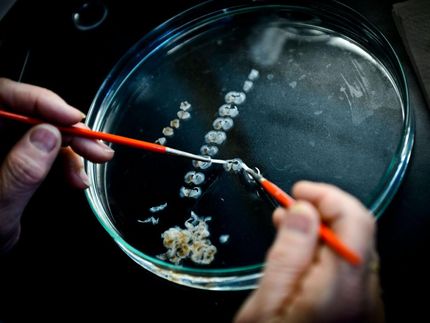Hormone ghrelin can boost resistance to Parkinson's disease
ghrelin, a hormone produced in the stomach, may be used to boost resistance to, or slow, the development of Parkinson's disease, Yale School of medicine researchers report in a study published in the Journal of neuroscience .
Parkinson's disease is caused by a degeneration of dopamine neurons in an area of the midbrain known as the substantia nigra, which is responsible for dopamine production. Reduced production of dopamine in late-stage Parkinson's causes symptoms such as severe difficulty in walking, restricted movements, delays in moving, lack of appetite, difficulty eating, periods of remaining motionless (known as "freezing") and head and limb tremors.
When the dopamine cells get sick and die, Parkinson's can develop. Yale researcher Tamas Horvath and colleagues found that ghrelin is protective of the dopamine neurons. "We also found that, in addition to its influence on appetite, ghrelin is responsible for direct activation of the brain's dopamine cells," said Horvath, chair and professor of comparative medicine and professor of neurobiology and obstetrics & gynecology at Yale School of Medicine. "Because this hormone originates from the stomach, it is circulating normally in the body, so it could easily be used to boost resistance to Parkinson's or it could be used to slow the development of the disease."
Horvath and colleagues conducted the study in mice that received ghrelin supplementation and in mice that were deficient in ghrelin hormone and in the ghrelin receptor. When compared to controls, mice with impaired ghrelin action in the brain had more loss of dopamine. Horvath said the results could be easily translated to human use because the ghrelin system is preserved through various species.
Ghrelin was previously associated with the release of growth hormones, appetite, learning, memory, and with the reward circuitry of the brain that regulates food cravings. Recent human studies show that body mass index, stored fat and diabetes are linked to Parkinson's disease. Past research also shows that obesity is a risk factor for neurodegeneration in mice.
In future work, Horvath and his team will try to determine ghrelin levels in both healthy individuals and Parkinson's patients. He will also determine whether altered ghrelin levels might be a biomarker of disease development and vulnerability.
Topics
Organizations
Other news from the department science

Get the life science industry in your inbox
By submitting this form you agree that LUMITOS AG will send you the newsletter(s) selected above by email. Your data will not be passed on to third parties. Your data will be stored and processed in accordance with our data protection regulations. LUMITOS may contact you by email for the purpose of advertising or market and opinion surveys. You can revoke your consent at any time without giving reasons to LUMITOS AG, Ernst-Augustin-Str. 2, 12489 Berlin, Germany or by e-mail at revoke@lumitos.com with effect for the future. In addition, each email contains a link to unsubscribe from the corresponding newsletter.




















































